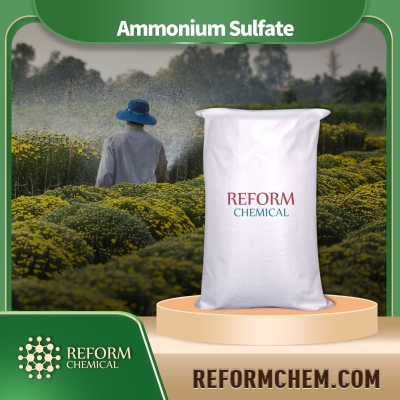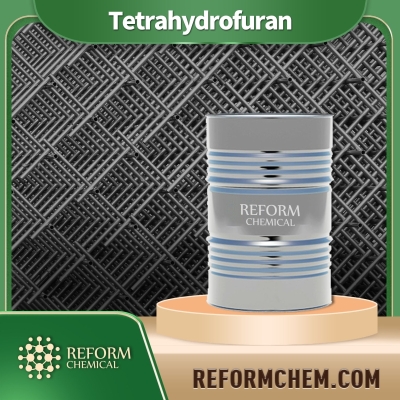-
Categories
-
Pharmaceutical Intermediates
-
Active Pharmaceutical Ingredients
-
Food Additives
- Industrial Coatings
- Agrochemicals
- Dyes and Pigments
- Surfactant
- Flavors and Fragrances
- Chemical Reagents
- Catalyst and Auxiliary
- Natural Products
- Inorganic Chemistry
-
Organic Chemistry
-
Biochemical Engineering
- Analytical Chemistry
-
Cosmetic Ingredient
- Water Treatment Chemical
-
Pharmaceutical Intermediates
Promotion
ECHEMI Mall
Wholesale
Weekly Price
Exhibition
News
-
Trade Service
The Ministry of Agriculture announced on December 4 that on the basis of the withdrawal of 22 highly toxic pesticides, it will strive to ban all the existing 10 highly toxic pesticides within 5 years to reduce quality and safety risks
.
From June 1 this year, the newly revised "Pesticide Management Regulations" began to be implemented
.
What changes have taken place in the pesticide industry in the past six months? What is the current situation of my country's management of highly toxic pesticides, and how will biological pesticides develop? Economic Daily? A reporter from China Economic Net interviewed Zeng Yande, Director of the Planting Industry Department of the Ministry of Agriculture and Director of the Pesticide Administration Bureau on the 4th
.
"The Regulations have made major adjustments to the pesticide management functions, and the Ministry of Agriculture is responsible for the supervision of pesticide registration, production, operation, and use
.
" Zeng Yande said that since the Ministry of Agriculture has performed its regulatory responsibilities, it has focused on the current outstanding homogeneity of pesticide products.
To address the problems of small, scattered, and disordered chemical and pesticide operations, raise the threshold for pesticide registration and management, and establish an exit mechanism to speed up the elimination of high-risk pesticides
.
At the same time, it focused on increasing the fines for illegal activities such as unlicensed production and operation, manufacturing and selling fakes, and in addition to confiscation of illegal income and revocation of relevant licenses, additional credit penalties such as "blacklisting" have been added to maintain a high pressure situation
.
The production of pesticide companies has high environmental requirements and high risks
.
In response, the Ministry of Agriculture proposed that newly established pesticide companies must enter a chemical park at or above the provincial level, and pesticide companies must enter a chemical park or industrial park at or above the prefectural (municipal) level if they relocate and newly increase the scope of production of technical materials
.
At the same time, pesticide manufacturers must eliminate high-polluting, high-risk backward production capacity, and must not produce products that are eliminated by the state, must not use processes, equipment, and raw materials eliminated by the state to engage in pesticide production, and must not add new products that are restricted by the state
.
From the perspective of application, the reduction of pesticides and the increase of efficiency is a direction of agricultural green development, and it is also an aspect of transforming the development mode
.
Zeng Yande introduced that since 2015, the Ministry of Agriculture has organized the "Zero Growth of Pesticide Use Action" to accelerate the reduction of pesticides and increase efficiency, and positive results have been achieved so far
.
First, the use of pesticides has been reduced
.
According to statistics, the use of pesticides has achieved negative growth for three consecutive years
.
Second, the utilization rate of pesticides has increased
.
According to scientific calculations, the utilization rate of pesticides reached 38.
8% in 2017, an increase of 2.
2 percentage points from 2015
.
"According to toxicity, pesticides can be divided into five categories: highly toxic, highly toxic, moderately toxic, low-toxic, and slightly toxic
.
Generally speaking, highly toxic pesticides include both highly toxic and highly toxic, which means that the acute toxicity is classified as Pesticides with high toxicity and above
.
" Zeng Yande said, as an important variety of pesticides, highly toxic pesticides have significant control effects, but highly toxic pesticides have a higher risk
.
If they are used improperly, they will bring quality and safety risks .
At present, most of the highly toxic pesticides have been withdrawn across the country
.
In recent years, the Ministry of Agriculture has banned 22 highly toxic pesticides based on the risk assessment and after full demonstration
.
At present, there are still 12 highly toxic pesticides used in agricultural production.
In 2017, two highly toxic pesticides, endosulfan and methyl bromide, were announced and will be completely banned in 2019
.
There are only 10 highly toxic pesticides now
.
These 10 highly toxic pesticides only accounted for 1.
4% of the total number of registered pesticide products, and strictly implemented restrictions on their use, and should not be used in the production of fruit and vegetable tea
.
Vigorously developing biological pesticides is the direction of the future development of the pesticide industry
.
Biological pesticides refer to pesticides whose active ingredients are derived from living organisms, including microbial pesticides, plant-derived pesticides, and natural enemy organisms
.
Its toxicity to humans, animals and the environment is relatively low, and it has shown a good momentum of development in recent years
.
According to statistics, the annual output of biological pesticides in China has reached nearly 300,000 tons (including technical materials and preparations)
.
The Ministry of Agriculture has launched a pilot program for low-toxic biological pesticide subsidies and formed a set of organizational methods, technical models and subsidy standards, which are well received by farmers
.
Zeng Yande said that in the future, it is necessary to increase subsidies for biological pesticides in conjunction with the implementation of a green and ecological-oriented subsidy system reform
.
The focus is to support new business entities and brand bases in the advantageous production areas of fruit, vegetable and tea, and to promote the application of biological pesticides on a large scale
.
Encourage local governments to increase subsidies, create a batch of demonstration bases for the use of biological pesticides, and build a batch of green and high-quality agricultural production bases
.
.
From June 1 this year, the newly revised "Pesticide Management Regulations" began to be implemented
.
What changes have taken place in the pesticide industry in the past six months? What is the current situation of my country's management of highly toxic pesticides, and how will biological pesticides develop? Economic Daily? A reporter from China Economic Net interviewed Zeng Yande, Director of the Planting Industry Department of the Ministry of Agriculture and Director of the Pesticide Administration Bureau on the 4th
.
"The Regulations have made major adjustments to the pesticide management functions, and the Ministry of Agriculture is responsible for the supervision of pesticide registration, production, operation, and use
.
" Zeng Yande said that since the Ministry of Agriculture has performed its regulatory responsibilities, it has focused on the current outstanding homogeneity of pesticide products.
To address the problems of small, scattered, and disordered chemical and pesticide operations, raise the threshold for pesticide registration and management, and establish an exit mechanism to speed up the elimination of high-risk pesticides
.
At the same time, it focused on increasing the fines for illegal activities such as unlicensed production and operation, manufacturing and selling fakes, and in addition to confiscation of illegal income and revocation of relevant licenses, additional credit penalties such as "blacklisting" have been added to maintain a high pressure situation
.
The production of pesticide companies has high environmental requirements and high risks
.
In response, the Ministry of Agriculture proposed that newly established pesticide companies must enter a chemical park at or above the provincial level, and pesticide companies must enter a chemical park or industrial park at or above the prefectural (municipal) level if they relocate and newly increase the scope of production of technical materials
.
At the same time, pesticide manufacturers must eliminate high-polluting, high-risk backward production capacity, and must not produce products that are eliminated by the state, must not use processes, equipment, and raw materials eliminated by the state to engage in pesticide production, and must not add new products that are restricted by the state
.
From the perspective of application, the reduction of pesticides and the increase of efficiency is a direction of agricultural green development, and it is also an aspect of transforming the development mode
.
Zeng Yande introduced that since 2015, the Ministry of Agriculture has organized the "Zero Growth of Pesticide Use Action" to accelerate the reduction of pesticides and increase efficiency, and positive results have been achieved so far
.
First, the use of pesticides has been reduced
.
According to statistics, the use of pesticides has achieved negative growth for three consecutive years
.
Second, the utilization rate of pesticides has increased
.
According to scientific calculations, the utilization rate of pesticides reached 38.
8% in 2017, an increase of 2.
2 percentage points from 2015
.
"According to toxicity, pesticides can be divided into five categories: highly toxic, highly toxic, moderately toxic, low-toxic, and slightly toxic
.
Generally speaking, highly toxic pesticides include both highly toxic and highly toxic, which means that the acute toxicity is classified as Pesticides with high toxicity and above
.
" Zeng Yande said, as an important variety of pesticides, highly toxic pesticides have significant control effects, but highly toxic pesticides have a higher risk
.
If they are used improperly, they will bring quality and safety risks .
At present, most of the highly toxic pesticides have been withdrawn across the country
.
In recent years, the Ministry of Agriculture has banned 22 highly toxic pesticides based on the risk assessment and after full demonstration
.
At present, there are still 12 highly toxic pesticides used in agricultural production.
In 2017, two highly toxic pesticides, endosulfan and methyl bromide, were announced and will be completely banned in 2019
.
There are only 10 highly toxic pesticides now
.
These 10 highly toxic pesticides only accounted for 1.
4% of the total number of registered pesticide products, and strictly implemented restrictions on their use, and should not be used in the production of fruit and vegetable tea
.
Vigorously developing biological pesticides is the direction of the future development of the pesticide industry
.
Biological pesticides refer to pesticides whose active ingredients are derived from living organisms, including microbial pesticides, plant-derived pesticides, and natural enemy organisms
.
Its toxicity to humans, animals and the environment is relatively low, and it has shown a good momentum of development in recent years
.
According to statistics, the annual output of biological pesticides in China has reached nearly 300,000 tons (including technical materials and preparations)
.
The Ministry of Agriculture has launched a pilot program for low-toxic biological pesticide subsidies and formed a set of organizational methods, technical models and subsidy standards, which are well received by farmers
.
Zeng Yande said that in the future, it is necessary to increase subsidies for biological pesticides in conjunction with the implementation of a green and ecological-oriented subsidy system reform
.
The focus is to support new business entities and brand bases in the advantageous production areas of fruit, vegetable and tea, and to promote the application of biological pesticides on a large scale
.
Encourage local governments to increase subsidies, create a batch of demonstration bases for the use of biological pesticides, and build a batch of green and high-quality agricultural production bases
.






